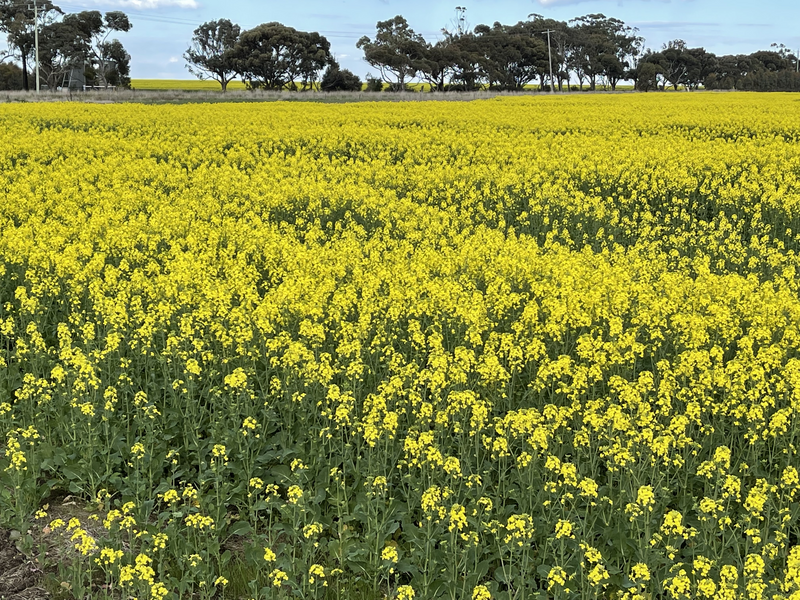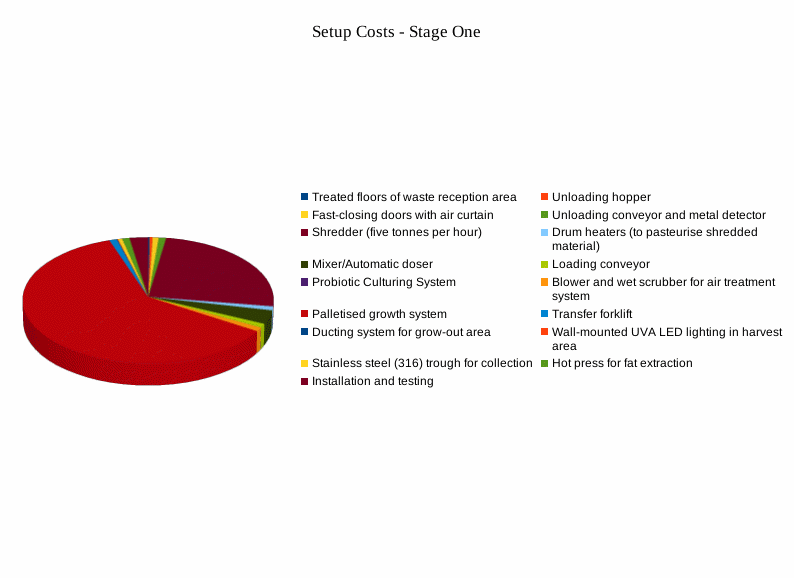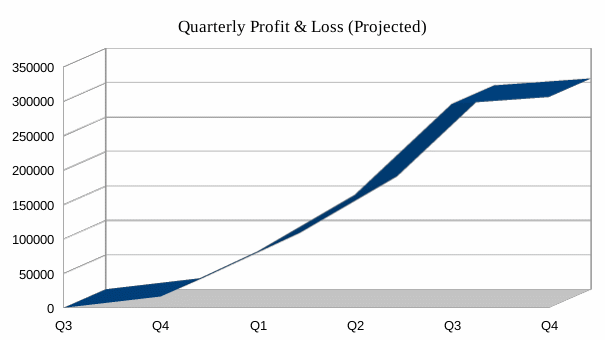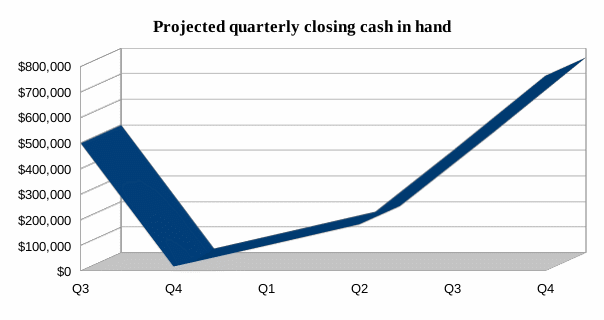
About Us

Business
StructureProprietary Limited Company
Established
10th March 2020
Date registered
10th March 2020
Registration #
ACN: 639 659 957
ABN: 47639659957
Location
Postal address
1485 Ballan Road, Anakie, VIC, 3213
Operations address
1485 Ballan Road, Anakie, VIC, 3213
Executive Summary
Current position
Situated in the rich farmlands of Anakie only an hour from Melbourne, BSF Organic Waste Recycling is uniquely positioned to revolutionise the way we treat organic waste in Geelong, Melbourne and Australia.
BSF Organics is an organic waste recovery start-up entering an early growth phase, with a demonstration plant operating and customers waiting impatiently as the business is scaled up. At present BSF Organics is able to process on a pilot scale, but (using process and technology proven in Israel) will scale up to four tonnes per day once the next round of capital is secured.

Growth plan
Each year Australians throw out an estimated 30 to 35% of all food consumed which is over 5.3 million tonnes of food, 90% of which ends up in landfill. At the same time, tens of thousands of tonnes of high-protein feed are imported and fed to fish and livestock. BSF Organics are able to charge customers to take away waste, process the waste with Black Soldier Fly Larvae (BSFL), and then manufacture high-protein fish feed from the BSFL and agricultural soil from the residue (‘frass’), to capture maximum value with a diversity of revenue streams.
This process could then be replicated or franchised nationally and internationally.
Several by-products of the process have promise as ancillary revenue streams. The carapace on the larvae is a valuable source of chitosan, which is used as a food additive and in high end cosmetics.
Additionally, there is an emerging market for BSFL anti-microbial, anti-viral and anti-fungal peptide extracts in medicine and as a horticultural treatment for bacterial diseases of potatoes and brassicas, a problem annually costing Victoria tens of millions of dollars in lost farm revenue and for which there is no other reliable solution.
Business Background
History
BSF Organics was registered on the 10th of March 2020 by Andrew Porter and Neil McInnes. The commencement of operations was delayed by the outbreak of COVID-19, but nevertheless BSF began building a pilot project.
BSF breeding colonies were established during August, and BSF joined the Insect Protein Association of Australia on the 12th of October 2020. Andrew signed up key customer Harvey’s Fruit and Vegetables Wholesale in November 2020, giving the business access to commercial-scale feedstock for growing BSFL. After meeting Peter Lansell in December 2020, BSF decided to embark on a modularised expansion program.
Goals
Short term goals
| Planning and regulatory approval (✓) | 1st Apr 2021 |
| Growth chamber system in testing (✓) | 1st May 2021 |
| Small commercial-scale plant operational, BSFL first cycle complete (✓) | 1st Jul 2022 |
| First commercial production of pelleted BSFL-based fish feeds | 1st Jan 2024 |
| Four tonnes per day waste conversion to BSFL in operation | 30th Apr 2024 |
Long term goals
| Acquire membership of Stockfeeds Australia | 1st Mar 2024 |
| Establish facilities throughout Australia – each state capital | 30th Jun 2025 |
| Waste depots in each Australian city with a population more than 10,000 | 30th Jun 2030 |
Products and Services
The receiving, processing and up-cycling of organic waste.
The unique value of BSF’s proposition is that it prevents the collected waste going to landfill at a cost of $105.90 per tonne in levies alone. The acceptance cost at the putrescible waste tip is typically $180 per tonne and is due to go up considerably in the near future. The transport to the tip can vary from 30 to 60 cents cent per tonne per kilometre. This is a significant cost advantage over competitors. Victorian businesses in retail, hospitality, aged care, healthcare and other industries produce hundreds of thousands of tonnes of organic wastes each year, much of which is suitable for BSF Organic’s process.
High-protein animal feed
BSFL are forty percent protein by dry weight, with a favourable amino-acid ratio for feeding to fish, poultry and pigs.
Precisely formulated fish feeds are currently selling for $2,300 / tonne. Feed costs amount to up to 80% of the cost of raising farmed fish; and the market is deep and well-established.
BSF Organic is presently researching the use of these feedstocks to raise barramundi and Australian Bass.
Organic fertiliser (‘frass’)
The remaining non-volatile wastes after processing are suitable for sale as agricultural soil amendment, being largely composed of humates and other organic matter with high levels of fixed nitrogen, phosphorous and potassium, at up to $240 / tonne.
BSF Organic is presently working with City of Greater Geelong to create an improved seed-raising potting mix, and with Forest Floor Fungi to create mushroom substrate.
Intellectual property (IP)
BSF has an established strategic relationship with Jeffery Tomberlin PhD and Evo Conversion Systems, global leaders in commercialisation of Black Soldier Fly Larvae. This presents an opportunity to develop in-house systems and procedures for utilising Evo Conversion’s BSFL technology in an Australian economic, social and regulatory context; and managing a vertically integrated system producing frass, fish feed and antimicrobial peptides in a single facility.
CSIRO has awarded BSF Organic a kickstart grant to partner in researching immunostimulatory and anti-inflammatory effects of BSFL as aquaculture feed.
Deakin University is working with BSF Organic to jointly develop the most effective methods for extracting maximum value, especially peptides, and to better quantify the sequestration of carbon in soils acheived by our process.
Locations and outlets
1485 Ballan Road, Anakie: Office and production facility on long term lease. Up to twenty thousand square metres of floor space are available over two buildings.

Business Strategy
Tactics
Stage One – build BSFL conversion capacity
- Building relationships
- Acquire EPA and municipal permits (✓)
- Cleanaway (in talks)
- CSIRO (in talks)
- Deakin University (in talks)
- Geelong Council (✓)
- Regional Development Victoria
- Department of Industry
- James Cook University (in talks)
- Mainstream Aquaculture (in talks)
- Humpty Doo
- Grampians Region Waste Management Committee
- Receiving waste
- Receive organic waste collection, including bins (✓)
- Treat floors of waste reception area
- Install unloading hopper large enough to hold one truck delivery
- Fast-closing doors with air curtain
- Unloading conveyor and metal detector
- Shredder (two to five tonnes per hour)
- Drum heaters (to pasteurise shredded material)
- Loading conveyor
- Blower and wet scrubber for air treatment system
- BSFL production
- Prototype, test, iterate pallet-format growth chambers
- Send final design to production (~4000 units required)
- Transfer forklift
- Ducting system for grow-out area
- Wall-mounted UVA LED lighting in harvest area
- Stainless steel (316) trough for collection
Stage Two – build fish-feed manufacturing capability
- Building relationships
- Membership of Stockfeed Australia
- Receiving waste
- Decanter, for very wet wastes
- Tumbling dryer
- Grinder (two to five tonnes per hour)
- BSFL production
- Washing vat
- Separator
- Press
- Aquaculture feed production
- Mixing vat
- Pelletiser
Stage Three – franchise nationally
- Every population centre with more than 10,000 full time resident equivalents is potentially able to support a profitable depot.

Strategic impact
Decline in wild fishing stocks has led to upward pressure on fish meal and fish oil prices. As fishmeal and/or fish oil are the most critical component of aquaculture feed, this has increased demand for alternative high-protein feedstocks. Terrestrial plant-based sources of protein (such as cereals and legumes) contain naturally-occurring antinutrients with serious negative consequences for farmed fish growth, health and final product quality. An insect-based high-protein feed, Black Soldier Fly Larvae do not contain antinutrients, and are well-placed to fill the unmet demand.
Growth of resistance in many crop pests and human pathogens has led to research into novel sources of antibiotics and fungicides. Black Soldierfly Larvae produce a wide range of antibiotic peptides to protect themselves, as they live in fermenting organic material rich in competing decomposers.
Fatty acid / alcohol extracts of BSFL have demonstrated high efficacy in the laboratory against several problematic fungal and bacterial species and at comparatively low cost. It may be several years before BSFL extracts become mainstream crop or medical treatments, but the additional revenue could come to exceed the value of all other products combined.
"We are well aware of the benefits of insect protein, we are yet to find anyone that can supply a meaningful amount."
- Boris Musa of Mainstream Aquaculture, personal communication
Credibility and risk reduction
To minimise technological risks, BSF Organics commenced with small laboratory-scale batches of BSFL before gradually scaling up. To further reduce technological risks inherent in scaling up, BSF Organics consults with Jeffery Tomberlin PhD of Evo Conversion Systems. Jeffery is one of the world’s foremost authorities on commercialisation of black soldier flies.
We have engaged with experts in aquaculture, including Peter Lansell, whose long experience in the industry has helped us better understand our customers' needs and requirements.
BSF Organics has become a member of The Insect Protein Association of Australia and plans to join the Stock Feed Manufacturers’ Council of Australia, giving BSF the opportunity to network and to collaborate with other industry stakeholders.
Core values
The BSF Organic plan is based on ESG.E = Environment
Our aim is to be as environmentally friendly as possible in our products, processes and operations.
- We will utilise the latest technology in renewable energy and be as efficient as possible.
- Reduce landfill and greenhouse gas emissions by establishing as many organic waste recycling facilities as possible, while reducing demand for overfished wild stocks.
- We will recycle water wherever possible.
- We will install solar panels to offset our electricity usage.
- We have engaged Derek Harbison (a renewable energy consultant) to help us with our energy planning from the outset.
- We plan to use the heat from combustion of grease-trap waste to heat our building.
- We will produce insect protein to reduce stress on existing protein sources and fish stocks.
- We will recycle organic waste and divert it from landfill to reduce CO2 emissions.
S = Social
We will adhere to socially responsible principles and behave in an ethical way that acknowledges and embraces our diverse society.
- Engagement and good relations with our local community.
- Benefit each locality by creating employment and relieving pressure on local landfill facilities and food production.
- Engagement and good relations with our workforce.
- Engagement with the education sector to teach future generations about the benefits of recycling organic waste and alternative protein sources.
G = Governance
We will hold ourselves to the strictest standards of compliance and governance. Our diverse board of directors has a wide range of experience and skills compatible with dealing with these operating conditions.
- Open, honest and transparent communication with regulators, stakeholders, workforce and the community is of the highest priority.
- The board will conduct a governance audit at least once a year.
- We will establish and maintain good relations with all levels of government, local councils, state and federal governments.
- We are in contact with and will stay in contact with the EPA to ensure that we abide by all their requirements.
- We will gain ISO certification.
- We will gain FeedSafe accreditation from the Stock Feed Manufacturers Council of Australia.
Our Team
Management structure
Andrew Porter is the managing director of BSF Organics.
Qing Wu (accounting) reports directly to Andrew Porter.
Current team
| Name | Andrew Porter |
| Position | Managing Director |
| Expertise | Business management, BSFL raising |
| Andrew Porter has several decades experience as a successful business owner, at one point partnered with Lockheed Martin developing security software. More recently, Andrew pioneered pilot-scale BSFL raising before founding BSF Organic to commercialise the technology. | |
| Name | Neil McInnes |
| Position | Business Management Consultant |
| Expertise | Business management |
| Neil has more than twenty years experience in business management. In 1996 he founded and ran Way Out Evacuation Systems PL., a successful startup in signage and evacuation systems. Notable customers included Brisbane International Airport, the NSW and Victorian rail networks, the original Spirit of Tasmania, and the Australian Navy’s Collins-class submarines and all other large vessels. Neil sold Way Out Evacuation Systems in 2016. | |
Retention and recruitment policies
BSF Organic intends to augment employee salaries with a profit-sharing arrangement - 2%-5% of pre-tax earnings as incentives to non-executive staff. Once the first facility is in full operation and processes have been fully documented, BSF Organic intends to roll out waste depots and processing plants nation-wide. This will require in-house training programs to upskill local regional employees.
At this stage, BSF Organic will also commence school outreach programs to build community buy-in and support.
Mentors and business support
- A business relationship with Jeffery Tomberlin PhD., the world’s foremost authority on commercialisation of black soldier fly larvae.
- Dr Artur Rombenso of the Aquaculture Program, Agriculture and Food, CSIRO is a regular correspondent and mentor.
- Peter Lansell, an engineer and entrepreneur with many decades experience.
- Jeannine Malcolm has been a great support and source of information to BSF in this formative stage.

SWOT and critical success factors
Strengths
- An internationally proven waste-upcycling process with little local competition.
- Clean, no waste, environmentally friendly process that reduces greenhouse gas emissions.
- Competitive cost structure.
- Community desire to contribute to the effort to reduce greenhouse gas emissions and reduce pressure on landfills.
We will leverage by utilising already-proven techniques to compress development and build-out times, and engaging with local businesses to source our inputs.
Weaknesses
Expansion plans exceed capital available internally.
We will mitigate by:
- Sourcing new investor funding
- Local, state and federal grants
Opportunities
- Expanding aquaculture industry needs feed.
- Plant-based fish feed negatively affects digestibility of the feed and the taste of the fish.
- Declining availability of wild fish meal.
- BSFL antimicrobial and anti-fungal peptide emerging uses for medicine, nutriceuticals and crop protection.
We will take action by:
- Engaging with potential aquaculture customers and involving them in feed trials.
- Ongoing monitoring of this developing industry.
Threats
Waste and stockfeed are highly regulated industries, and globally undergoing rapid change.
We will minimise by remaining engaged through membership of industry bodies
SWOT summary
Chosen strategy
Rapidly build capacity using proven technologies to capture market share before the entry of effective and well-resourced competitors.
Once this is achieved, vertically integrate to extract maximum value from resources; and franchise to expand horizontally utilising local capital, labour and connections in each market.
Critical success factors
- Relationships with the CSIRO, Regional Development Victoria, Sustainability Victoria and Circular Economy Geelong.
- Maintaining consistency of supply, in terms of volumes, composition and contamination levels.
- Effective B2B marketing and relationship management
- Quality control and consistency of final products (principally BSFL, fish-feed and compost).
- Standardised procedures, constant testing and regular customer feedback to stay ahead of competition.
Market Research
BSF Organics has been in touch with many of Australia's aquaculture companies. Mainstream Aquaculture operates in Werribee, Innisfail and the Latrobe Valley, and will consume an estimated 32,000 tonnes of fish feed at the completion of their major project in the Latrobe Valley.
Humpty Doo Barramundi is Australia's largest aquaculture operation, and BSF Organic has been in contact with Humpty Doo regarding a proposed feed trial.
In the waste industry, BSF Organics has an established relationship with Deakin University, Geelong Football Club, Sustainability Victoria and with Geelong Food Manufacturing Council, giving BSF connections to numerous local businesses that require organic waste management.
Market Analysis
Market opportunity
As many as 5.3 million tonnes of food wastes are are buried in landfill each year in Australia, at a disposal cost of more than $180 per tonne in many areas.
Hundreds of thousands of tonnes of high-protein fishfeed is manufactured or imported each year in Australia. Equivalents currently wholesale for $2300/tonne.
Market structure
Waste management, stockfeed and fertiliser markets are dominated by a small number of large firms.
Initially, BSF Organics will be a supplier of BSFL protein to existing large customers who manufacture their own feeds but will develop capacity to manufacture aquaculture feed pellets in-house to reach a larger market.
Market size and outlook
The organic waste management market is expanding rapidly, with 53 local councils in Victoria already collecting organic wastes at the curb side, and increased landfill levies increasingly squeezing conventional waste management firms.
Aquaculture production accounts for 60% of fish consumed in the world, and is growing globally at 10% per annum, but existing sources of high-protein easily-assimilated feeds are either fully utilised or in decline, resulting in rising feed prices and availability disruptions.
Target market
Target market description
For waste management and disposal, the initial market is food manufacturing, and wholesaling business in the Geelong region, expanding to include food retailing, hospitality, aged care and healthcare as soon as commercial-scale BSFL production commences.
For BSFL protein, initial customers are to be major aquaculture firms and aquafeed manufacturers. Once BSF Organic has demonstrated in-house aquafeed production, this can be expanded to include smaller aquaculture producers. Once BSF Organic has commenced commercial-scale in-house aquaculture, the market can be expanded again to include restaurants and supermarket chains.
Peptide extracts and chitosan sales to follow once cashflow and market maturity permit the capital investment.
How BSF Organic will meet the market’s requirements
Food manufacturing and wholesaling businesses have established needs for regular large-scale organic waste disposal, a high level of management involvement in waste decision-making, and strong organisational knowledge of the industry. Hospitality, food retail, aged care and healthcare businesses have similar needs, but of lesser scale, predictability or perceived organisational importance. In each case, regular and reliable collection is essential, as is effective communication. Established waste industry collection and transport firms have considerable experience, efficiency and capacity in this field, and BSF Organic will build strategic relationships with one (Cleanaway) or more to source collection services and meet the waste customers' needs.
With regard to BSFL protein, large aquaculture and aquafeed manufacturers are already aware of the potential for insect-derived feedstocks, but will be sensitive to product consistency and regularity of supply. BSFL will meet these needs firstly via constant quality testing of both inputs and product, and in the second case by using a continuous production system with a diversity of waste feedstocks to buffer against external shocks.
Competitor analysis
Main competitor: Karma 3
Strengths
First-to-market
Weaknesses
Small-scale and high cost.
Strategy
Build capacity and economies of scale to compete with them on both cost and quality.

Second key competitor: GoTerra
Strengths
Strong relationship with Federal and ACT governments
Weaknesses
High-CAPEX concept, requiring robotics and multiple highly automated plants.
Small-scale single-facility plants cannot generate economies of scale nor provide stability and consistency of supply required by the BSFL to thrive.
Strategy
Build-out of a larger, more systematised plant at a far lower CAPEX per unit capacity will allow BSF Organic to compete on price; and franchising this model horizontally will allow expansion with far less capital than GoTerra's containerised single-facility plants would need to reach the same markets.
Third key competitor: Mobius
Strengths
Well-presented, high-margin niche
Weaknesses
Single facility
Small scale
High prices
Strategy
Build capability and volume at lower cost per unit than Mobius.
Financial Plan
More details available here.
Capital requirements

Capital required Stage One: AUD$500,000.
Capital required Stage Two: AUD$200,000.

Capital required Stage Three: nil, to be funded from cash flows.
Financial performance

Estimated break-even date: 2023 Mar 01.
Cash flows

Build-out may be delayed if sufficient capital not raised by end of October 2022. This will affect profitability and competitive position, but the business will survive on existing near-term cashflows.
Marketing Plan
Launch budget
The marketing strategy of BSF Organics is based on B2B relationship development via established networks, especially Geelong Football Club and the Geelong Food Manufacturers’ Council.
- Website: $2000, including on-page SEO
- Instagram, Facebook, Blog: free
Marketing budget
- $100 / month – SEO and hosting
- $900 / month – Entertaining clients
Business Ownership Structure
Directors
- Andrew Porter
Other shareholders
- Neil McInnes
- Wayne Allan
- Derek Harbison
- Santo Allesi
Compliance
Legal and regulatory considerations
Waste management in Victoria is regulated by the Environmental Protection Authority. The primary legislation is the Environment Protection (Industrial Waste Resource) Regulations 2009 (amended 18th July 2017).
Stockfeed is regulated at both federal and state levels.
Aquaculture is subject to the authority of a diversity of state agencies.
BSF Organics management will remain engaged with the developing regulatory environment, both directly and through involvement with Stockfeed Australia and The Insect Protein Association of Australia.
Insurance
Public Liability $20,000,000.
Business Insurance and Liability Insurance are also being provided through Integral Insurance.
Assets
Business premises
Anakie farm is leased for twelve months with a five years plus five years option.
Plant and Equipment
Initial plant and equipment sourced commercial off-the-shelf, progressively being modified to better suit BSFL production.
IT
Requirements
Stage One will be under manual oversight with a small number of discrete controllers, but during Stage Two will be progressively upgraded and networked into a DCS covering waste receiving, BSFL and pellet production.
Solutions
A high degree of customisation will be required, and the ability to modify and upgrade sections of the plant in-house. To a large degree the solution chosen in Stage Two will depend on the availability of capital and personnel, but VOLTTRON-DCS could fill the role, with plenty of options for growth at a very low cost (ie. free).
Contact Us
For further information, please contact Andrew Porter on 0411 181 110 or email andrew@bsforganic.com.au